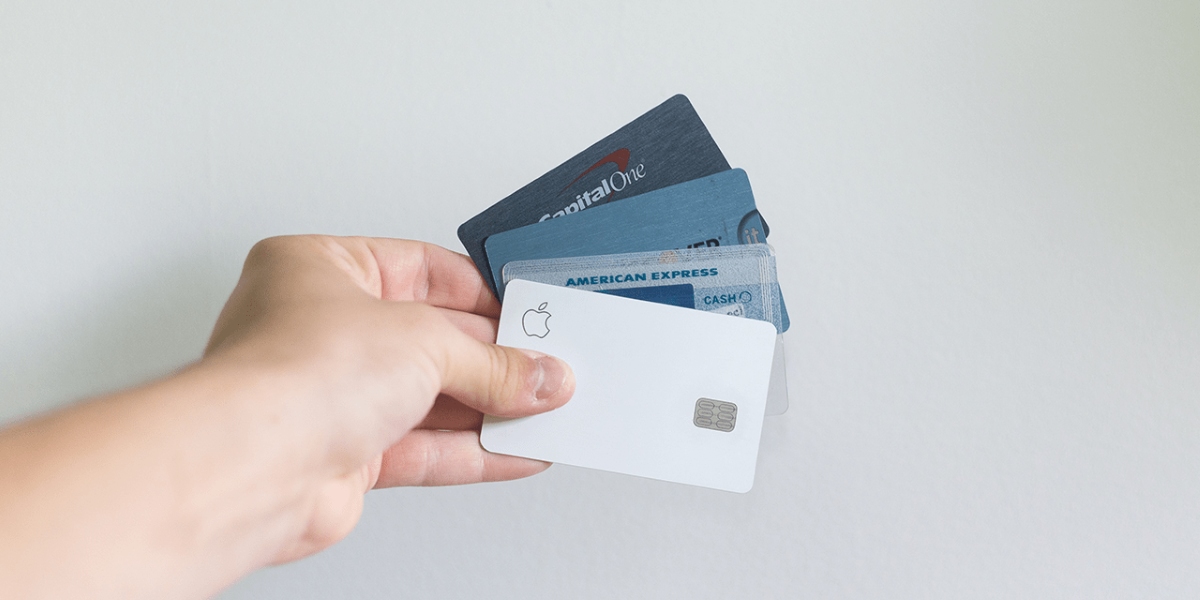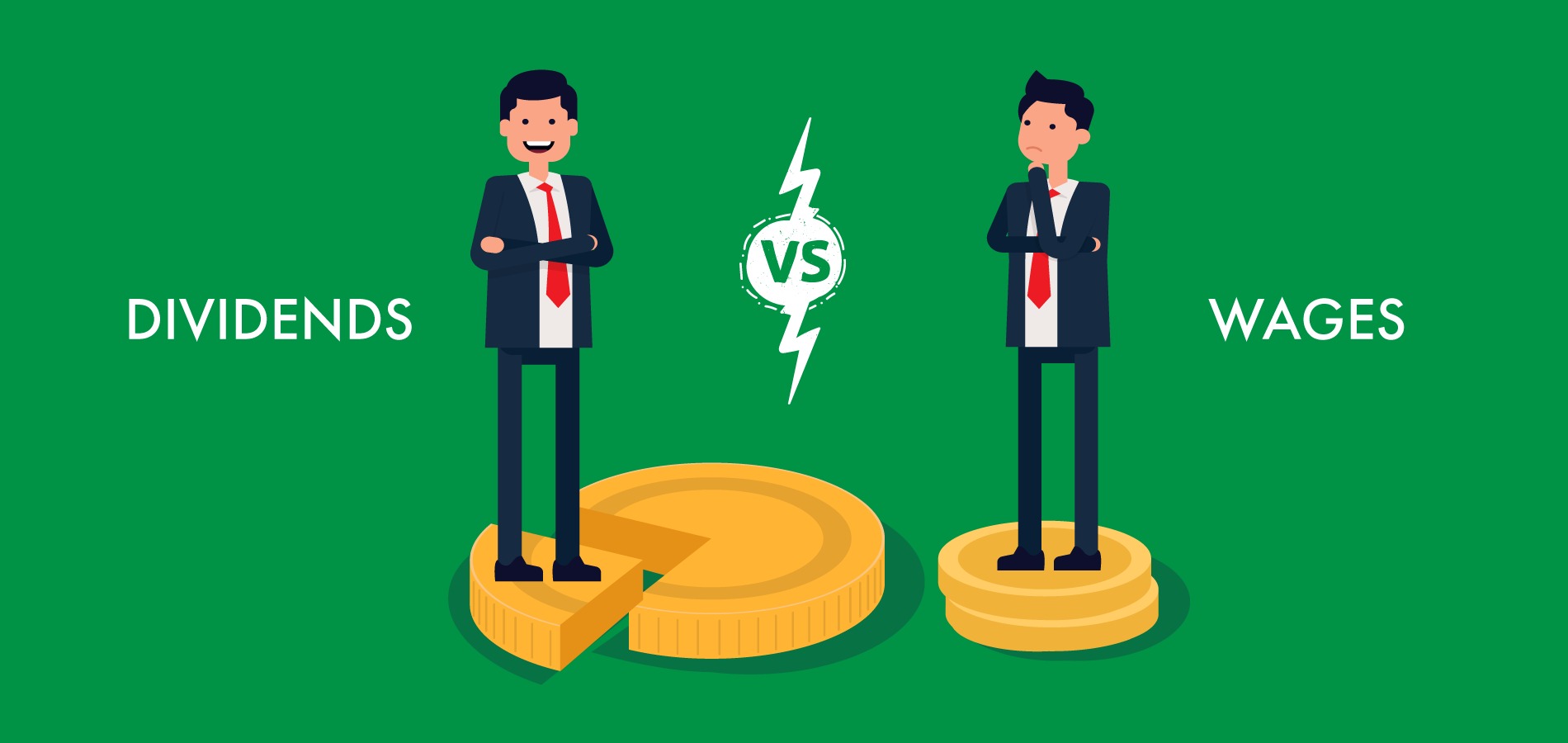

Finance
How To Improve 715 Credit Score
Modified: March 4, 2024
Learn how to improve your 715 credit score in the realm of finance. Increase your financial health and secure better rates and deals.
(Many of the links in this article redirect to a specific reviewed product. Your purchase of these products through affiliate links helps to generate commission for LiveWell, at no extra cost. Learn more)
Table of Contents
Introduction
Your credit score is a three-digit number that plays a crucial role in your financial life. It determines your creditworthiness and can impact your ability to secure loans, obtain favorable interest rates, and even land a job or rent an apartment. If you currently have a credit score of 715, you are already in a solid position. However, there is always room for improvement.
In this article, we will explore how to enhance a 715 credit score further. We will discuss the importance of a good credit score, the factors that affect it, and the steps you can take to boost it to even greater heights.
Understanding Credit Scores
Before diving into the details, it is essential to understand how credit scores are calculated. Credit scores typically range from 300 to 850, with higher scores indicating better creditworthiness. Lenders use these scores to assess the level of risk associated with lending you money.
Several different credit scoring models exist, with the FICO Score and VantageScore being the most commonly used. They evaluate your credit history, payment history, credit utilization, length of credit, and the types of credit you have. Each of these factors carries a different weight in determining your score.
Importance of a 715 Credit Score
A credit score of 715 is considered good and puts you in a favorable position to access credit and secure favorable loan terms. With a score in this range, you are more likely to be approved for loans and credit cards with competitive interest rates.
A 715 credit score indicates that you have a relatively low risk of defaulting on payments. It demonstrates responsible financial behavior and shows lenders that you are likely to honor your obligations. This can positively impact your ability to secure housing, obtain favorable insurance rates, and even negotiate better terms on your utility bills.
While a 715 credit score is commendable, there is still room for improvement. By taking proactive steps, you can further enhance your creditworthiness and increase your chances of obtaining the most favorable rates and terms on loans and credit cards.
Understanding Credit Scores
Before diving into the details of how to improve a 715 credit score, it is important to have a solid understanding of how credit scores work. Your credit score is a numerical representation of your creditworthiness, based on information collected from your credit history.
The most commonly used credit scoring models are the FICO Score and VantageScore. These models take into account several factors to calculate your credit score:
- Credit History: This refers to the length of time you have had credit accounts and how responsibly you have managed them.
- Payment History: This includes the timeliness of your payments, any late or missed payments, and any accounts in collections.
- Credit Utilization: This is the percentage of your available credit that you are currently using. Keeping your credit utilization below 30% is generally recommended.
- Length of Credit: The longer you have a credit history, the more data lenders have to evaluate your creditworthiness.
- Types of Credit: Lenders like to see a mix of different types of credit, such as credit cards, auto loans, and mortgages.
Your credit scores from different bureaus may vary slightly due to different scoring models and reporting variations. It is important to regularly check your credit reports from the major credit bureaus – Experian, TransUnion, and Equifax – to ensure accuracy.
Now that you have a basic understanding of how credit scores are calculated, let’s explore why a good credit score is important.
Importance of a 715 Credit Score
A credit score of 715 is considered good and reflects a solid credit history. It puts you in a favorable position when it comes to accessing credit and securing favorable loan terms. Here are some reasons why a good credit score is important:
- Loan Approval: With a credit score of 715, you are more likely to be approved for loans, such as personal loans, auto loans, or mortgages. Lenders view you as a responsible borrower with a low risk of defaulting on payments.
- Competitive Interest Rates: A good credit score opens the door to securing loans and credit cards with competitive interest rates. This can save you significant money over the life of a loan or when carrying a balance on a credit card.
- Credit Card Options: A higher credit score can increase your chances of being approved for credit cards with better rewards programs, higher credit limits, and added perks like cashback or travel rewards.
- Utility Deposits and Rental Applications: Landlords and utility companies often check credit scores as part of their application process. A higher credit score may allow you to bypass hefty utility deposits and increase your chances of securing the rental property you desire.
- Insurance Premiums: Some insurance companies use credit scores to determine premiums for auto or home insurance. A good credit score can result in lower insurance rates, saving you money year after year.
- Employment Opportunities: Certain employers may check credit scores during the hiring process, particularly for positions that involve financial responsibilities. A good credit score can enhance your chances of landing a job, especially in the financial industry.
A 715 credit score demonstrates responsible financial behavior and shows lenders and other entities that you are likely to honor your financial commitments. However, it’s important to remember that even with a good credit score, there is always room for improvement. In the next section, we will discuss steps you can take to elevate your credit score even further.
Factors Affecting Credit Score
Your credit score is influenced by several key factors. Understanding these factors can help you make informed decisions and take actions to improve your credit score. Here are the main factors that affect your credit score:
- Payment History: Your payment history is one of the most critical factors affecting your credit score. Making timely payments on all your credit accounts, such as credit cards, loans, and mortgages, helps demonstrate your reliability as a borrower.
- Credit Utilization Ratio: This refers to the amount of available credit you are currently using. It is calculated by dividing your total credit card balances by your total credit card limits. Keeping your credit utilization ratio below 30% is generally recommended.
- Length of Credit History: The longer your credit history, the more information lenders have to assess your creditworthiness. This factor takes into account the age of your oldest account, the average age of all your accounts, and the time since you last used certain accounts.
- Credit Mix: Lenders like to see a mix of different types of credit on your report, such as credit cards, installment loans, and mortgages. This demonstrates your ability to manage different types of credit responsibly.
- New Credit Applications: Opening multiple new credit accounts in a short period of time can raise concerns about your financial stability. Each application creates a hard inquiry on your credit report, which can temporarily lower your score.
It’s important to note that not all factors carry the same weight in determining your credit score. Payment history and credit utilization ratio have the most significant impact on your score. However, it’s advisable to maintain a positive performance across all factors to achieve and maintain a strong credit score.
Now that you have a better understanding of the factors that influence your credit score, let’s move on to the actionable steps you can take to improve your 715 credit score.
Steps to Improve a 715 Credit Score
Even though a credit score of 715 is considered good, there is always room for improvement. Taking proactive steps to boost your credit score can open up even more financial opportunities and improve your overall financial well-being. Here are some effective strategies to improve your credit score:
- Paying Bills on Time: Consistently paying your bills on time is crucial for maintaining a good credit score. Set up automatic payments or reminders to ensure you never miss a payment.
- Reducing Credit Card Debt: High credit card balances can negatively impact your credit score. Aim to keep your credit card balances below 30% of your total credit limit and work on paying down your debt as much as possible.
- Limiting New Credit Applications: While it’s tempting to apply for multiple credit accounts, doing so can result in multiple hard inquiries on your credit report. Limit your new credit applications to avoid potential negative impacts on your credit score.
- Regularly Checking Credit Reports: Monitoring your credit reports for errors or fraudulent activity is essential. Request free copies of your credit reports annually from the major credit bureaus and review them for accuracy.
- Utilizing Different Types of Credit: Building a diverse credit history can positively impact your credit score. Consider responsibly using different types of credit, such as personal loans or mortgages, in addition to credit cards.
Improving your credit score takes time and consistent effort. It’s important to be patient and maintain healthy financial habits. Remember that building and maintaining a good credit score is a long-term process that involves responsible financial management.
By implementing these strategies, you can gradually see a positive impact on your credit score. It’s important to stay committed and focused on improving your financial standing. With perseverance, you can elevate your credit score and unlock even more financial opportunities.
In the next section, we will delve into the importance of paying bills on time and how it directly impacts your credit score.
Paying Bills on Time
One of the most important steps you can take to improve and maintain a good credit score is paying your bills on time. Your payment history contributes significantly to your credit score, making it crucial to prioritize timely payments. Here’s why paying your bills on time is important and how it impacts your credit score:
Credit Score Impact: Payment history is a major factor that credit scoring models consider when calculating your credit score. Late payments can have a detrimental effect on your credit score, causing it to drop significantly. Consistently making payments by their due dates demonstrates your reliability as a borrower and helps you maintain a positive credit history.
On-Time Payments: When you make payments on time, it shows lenders and creditors that you are responsible and trustworthy. This positive track record can pave the way for future loan approvals, credit limit increases, and better interest rates on loans and credit cards.
Late Payment Consequences: On the other hand, late payments can result in several negative consequences. This includes late fees, increased interest rates, penalty APRs, and even the potential for debt collection activities. Late payments can also stay on your credit report for up to seven years, further impacting your creditworthiness and future borrowing opportunities.
Strategies for Timely Payments: To ensure you consistently make payments on time, consider setting up automatic payments for your bills. This way, payments are deducted from your account on the due date, eliminating the risk of forgetting or overlooking a payment. Another strategy is to create reminders or utilize finance management tools to stay organized and aware of upcoming payments.
Addressing Late Payments: If you have missed a payment, it’s important to address it as soon as possible. Contact your creditor or lender and explain the situation. In some cases, they may be willing to waive late fees or work out a payment plan to help you catch up. It’s also essential to stay on top of future payments and make a concerted effort to avoid any more late payments.
Paying your bills on time is a fundamental aspect of responsible financial management. It not only helps you maintain a good credit score but also avoids unnecessary fees and stress associated with late payments. By prioritizing on-time payments, you establish a solid credit history and increase your chances of obtaining better financial opportunities in the future.
Next, we will explore the importance of reducing credit card debt and how it can positively impact your credit score.
Reducing Credit Card Debt
One of the most impactful steps you can take to improve your credit score is to reduce your credit card debt. High credit card balances can negatively impact your credit utilization ratio, which is a significant factor in determining your credit score. By actively working to lower your credit card debt, you can positively influence your credit score and improve your overall financial health. Here’s why reducing credit card debt is important and how it can benefit you:
Improves Credit Utilization Ratio: Credit utilization ratio refers to the percentage of your available credit that you are currently using. Keeping your credit card balances as low as possible in relation to your credit limits is crucial for maintaining a healthy credit utilization ratio. As you pay down your credit card debt, your utilization ratio decreases, which can have a positive impact on your credit score.
Reduces Interest Payments: Carrying high balances on your credit cards means accumulating interest charges each month. By actively reducing your credit card debt, you can save money on interest payments in the long run. This frees up more of your income to put towards savings or paying off other debts.
Improves Financial Stability: High levels of credit card debt can strain your financial situation and make it difficult to meet other financial obligations. By reducing your credit card debt, you can alleviate financial stress and gain more control over your finances. This can lead to improved financial stability and better overall money management.
Strategies for Reducing Credit Card Debt: To effectively reduce your credit card debt, consider the following strategies:
- Create a Budget: Start by examining your income and expenses to identify areas where you can cut back. Allocate a portion of your income specifically towards paying off your credit card debt.
- Prioritize Payments: Focus on paying off high-interest cards or cards with the smallest balances first. This can provide a sense of achievement and motivation to continue reducing your debt.
- Avoid Adding to Debt: Resist the temptation to make new purchases on your credit cards while you are trying to pay off existing debt. Instead, use cash or a debit card for your daily expenses.
- Consider Balance Transfers or Debt Consolidation: Explore options such as transferring high-interest balances to cards with lower interest rates or consolidating multiple credit card debts into a single loan with a lower interest rate.
- Seek Professional Help if Needed: If your credit card debt feels overwhelming, consider seeking guidance from a financial counselor or a reputable debt management agency.
By diligently working towards reducing your credit card debt, you can improve your credit utilization ratio, save money on interest payments, and achieve greater financial stability. It may take time, discipline, and sacrifice, but the long-term benefits are well worth it.
In the next section, we will discuss the impact of new credit applications on your credit score and the importance of limiting them.
Limiting New Credit Applications
When it comes to improving your credit score, it’s important to be mindful of the number of new credit applications you make. While applying for new credit can sometimes be necessary, a high number of applications within a short period can have negative implications on your credit score. Understanding why it’s important to limit new credit applications can help you make informed decisions about when and how often to apply for credit. Here’s why limiting new credit applications is crucial and how it can impact your credit score:
Impact of Hard Inquiries: When you apply for new credit, the lender typically performs a hard inquiry on your credit report. This inquiry results in a small temporary drop in your credit score. Too many hard inquiries within a short period can be seen as a sign of financial instability or borrowing beyond your means, potentially impacting your creditworthiness.
Increased Credit Risk: Applying for multiple credit accounts simultaneously can raise concerns among lenders about your ability to repay them. It may appear as though you are suddenly in need of significant amounts of credit, which can suggest an elevated level of credit risk.
Shorter Credit History: Each new credit account you open reduces the average age of your credit history. A shorter credit history can have a negative impact on your credit score, as lenders prefer to see a longer history of responsible credit management.
Strategies to Limit New Credit Applications: Here are some strategies to help you minimize the impact of new credit applications:
- Shop Around Wisely: Before applying for new credit, research and compare different options to find the most suitable terms and rates. Applying only for the credit you truly need can help prevent unnecessary hard inquiries.
- Be Selective: Consider the potential benefits and long-term value of the credit you are applying for. Applying for credit that aligns with your financial goals and needs can help minimize the frequency of new applications.
- Timing is Key: Space out your credit applications strategically. Waiting a few months between applications can help mitigate the impact of multiple hard inquiries affecting your credit score.
- Monitor Pre-Approval Offers: Be cautious about unsolicited pre-approval offers. While these offers can be tempting, they usually involve a hard inquiry when you proceed with the application.
By limiting the number of new credit applications you make, you can minimize the potential negative impact on your credit score. Remember, each individual’s credit journey is unique, so consider your financial goals and circumstances when deciding to apply for new credit.
Next, we will discuss the importance of regularly checking your credit reports and how it can help you maintain a healthy credit score.
Regularly Checking Credit Reports
Regularly checking your credit reports is an essential practice for maintaining a healthy credit score. Your credit reports contain crucial information about your credit history and financial activity. By staying vigilant and reviewing your credit reports regularly, you can identify and address any errors or fraudulent activity, ensure accuracy, and take proactive steps to maintain a strong credit score. Here’s why regularly checking your credit reports is important:
Identifying Errors: Credit reporting errors are more common than you might think. Mistakes in your credit reports, such as incorrect account information or missed payments, can negatively impact your credit score. By monitoring your reports, you can catch these errors early and take the necessary steps to dispute and rectify them.
Preventing Identity Theft: Regularly reviewing your credit reports allows you to detect any signs of suspicious or fraudulent activity. Being aware of unauthorized accounts or inquiries can help you take swift action to protect yourself from identity theft.
Ensuring Accuracy: Your credit reports serve as a snapshot of your credit history and financial behavior. By regularly checking them, you can ensure that the reported information is accurate and up to date. This includes verifying that your personal information is correct and that all reported accounts and payments reflect your actual credit activity.
Taking Proactive Steps: Monitoring your credit reports gives you the opportunity to identify areas for improvement and take proactive steps to maintain or improve your credit score. For example, if you notice a high credit utilization ratio or missed payments, you can adjust your financial habits accordingly to positively impact your credit score.
How to Check Your Credit Reports: You can obtain free copies of your credit reports from the three major credit bureaus – Experian, TransUnion, and Equifax – once every 12 months through AnnualCreditReport.com. It is recommended to stagger your requests so you can check one report every four months. Additionally, there are various credit monitoring services available that provide regular access to your credit reports and alerts for any changes or suspicious activity.
Reviewing Your Credit Reports: When reviewing your credit reports, pay attention to the accuracy of your personal information, the status of your accounts, any missed or late payments, and any unfamiliar or fraudulent activity. If you notice any discrepancies or errors, report them to the respective credit bureau to have them investigated and corrected.
Regularly checking your credit reports is an important aspect of maintaining a healthy credit score and overall financial well-being. By being proactive and vigilant, you can catch errors or fraudulent activity early and take the necessary steps to protect your creditworthiness.
Now, let’s explore the importance of utilizing different types of credit and how it can positively impact your credit score.
Utilizing Different Types of Credit
Utilizing different types of credit is an often overlooked but important strategy to improve your credit score. Having a diverse mix of credit accounts can demonstrate your ability to manage various types of credit responsibly. Lenders prefer to see a well-rounded credit history that includes different types of credit, such as credit cards, installment loans, and mortgages. Here’s why utilizing different types of credit is beneficial and how it can positively impact your credit score:
Credit Mix Impact: Your credit mix is a factor that lenders consider when determining your creditworthiness. It reflects your ability to handle different forms of credit responsibly. Having a mix of revolving credit, like credit cards, and installment credit, such as loan payments, showcases your financial versatility.
Long-Term Creditworthiness: Building a diverse credit history suggests that you can manage multiple financial obligations simultaneously. This helps establish your long-term creditworthiness and increases lenders’ confidence in your ability to handle future credit responsibilities.
Positive Credit Utilization: Utilizing different types of credit allows you to effectively manage your credit utilization ratio. Keeping your credit card balances low and making regular installment payments on other accounts demonstrates responsible credit management, positively impacting your credit score.
Improved Credit Score: Successfully managing different types of credit can boost your credit score over time. By strategically utilizing and repaying different credit accounts, you can demonstrate consistent payment history and responsible credit behavior, leading to a higher credit score.
Considerations for Utilizing Different Types of Credit: While diversifying your credit mix can be beneficial, it’s crucial to approach it responsibly. Here are a few considerations:
- Manage Credit Responsibly: Utilize different types of credit wisely, making payments on time and keeping debt levels manageable.
- Loan Terms: Understand the terms and conditions of the credit accounts you open, including interest rates, repayment periods, and any associated fees.
- Borrow Within Your Means: Only borrow what you can comfortably repay and avoid overextending yourself financially.
- Monitor Your Credit: Regularly check your credit reports to ensure accuracy and address any discrepancies or issues promptly.
By utilizing different types of credit responsibly, you can build a diverse credit history and strengthen your creditworthiness. Remember to maintain good payment habits, monitor your credit accounts, and borrow within your means. Over time, these efforts can contribute to an improved credit score and increased financial opportunities.
In the next section, we will summarize the key points discussed and conclude the article.
Conclusion
Improving and maintaining a good credit score is an essential part of achieving financial success. With a credit score of 715, you are already in a favorable position. However, there are steps you can take to further enhance your creditworthiness and open up even more opportunities. Throughout this article, we’ve explored various strategies to improve a 715 credit score.
We started by understanding credit scores and how they are calculated. This knowledge provides a foundation for making informed decisions about credit and finances. We then delved into the importance of a 715 credit score and how it can positively impact your financial life, from obtaining favorable loan terms to securing better insurance rates and even increasing employment opportunities.
We discussed the factors that can impact your credit score, including payment history, credit utilization ratio, length of credit history, credit mix, and new credit applications. Understanding these factors gives you insight into where to focus your efforts for improvement.
To improve your credit score, we explored key steps to take, such as paying bills on time, reducing credit card debt, limiting new credit applications, regularly checking credit reports, and utilizing different types of credit. Each of these strategies plays a crucial role in boosting your creditworthiness and maintaining a healthy credit score over time.
By paying your bills on time, reducing credit card debt, and limiting new credit applications, you can demonstrate financial responsibility and positively impact your credit score. Regularly checking your credit reports enables you to identify and correct any errors or fraudulent activity. Additionally, utilizing different types of credit helps diversify your credit mix and further strengthen your creditworthiness.
Remember that improving your credit score is a gradual process that requires patience and commitment. It is important to establish good financial habits and consistently practice them over time. By doing so, you can continue to enhance your creditworthiness and create a solid foundation for achieving your financial goals.
By implementing the strategies discussed in this article, you can take control of your credit score and ultimately improve your financial well-being. So, don’t wait – start taking these steps today and unlock even more financial opportunities!














